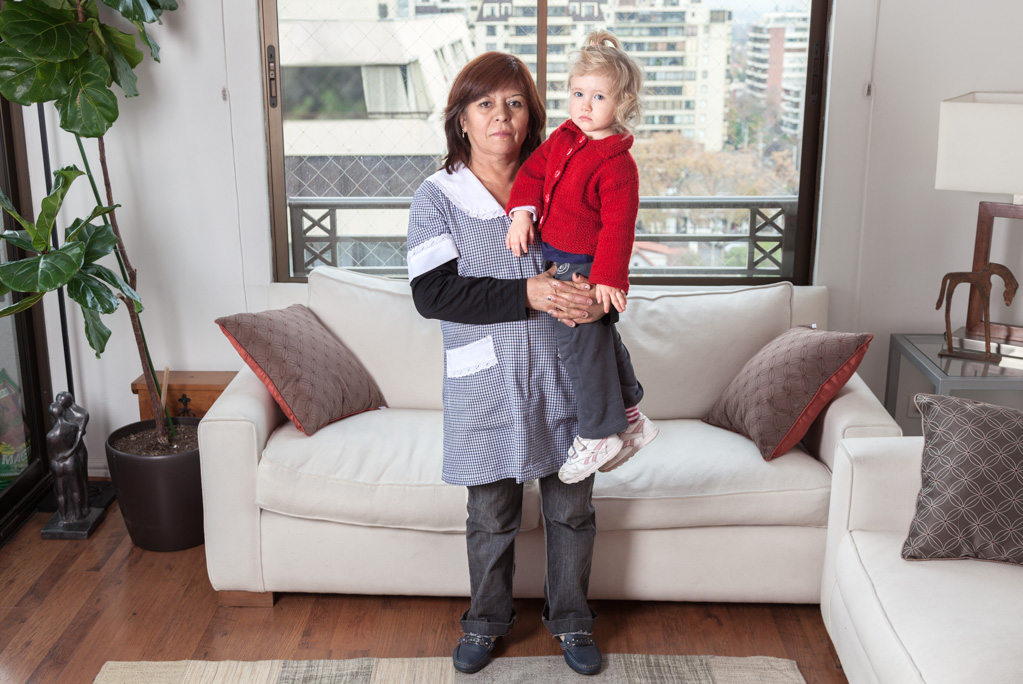
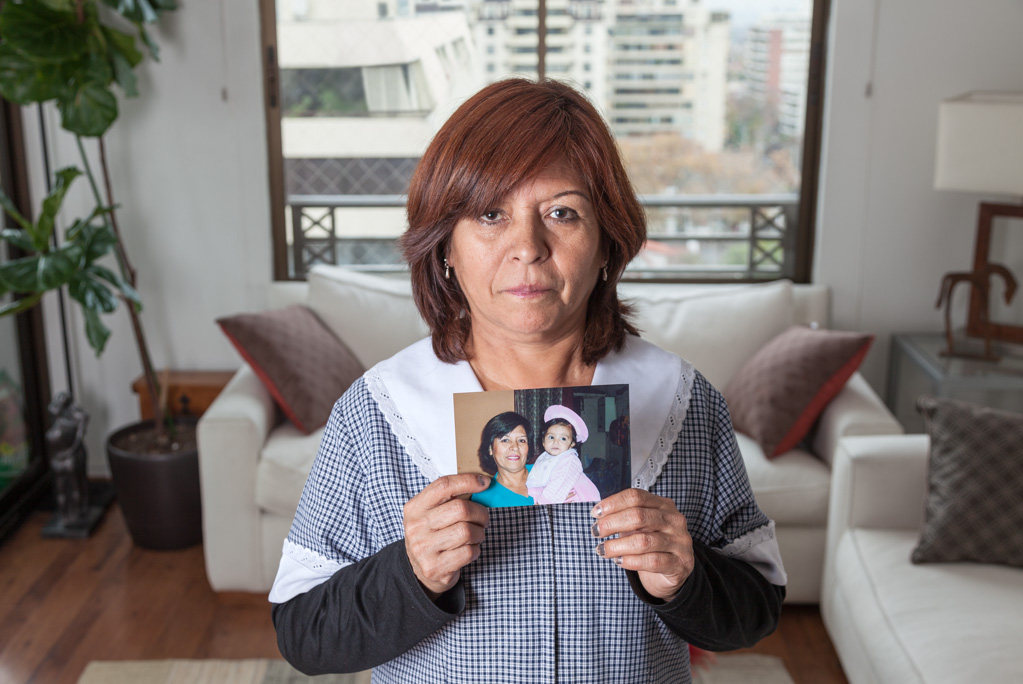
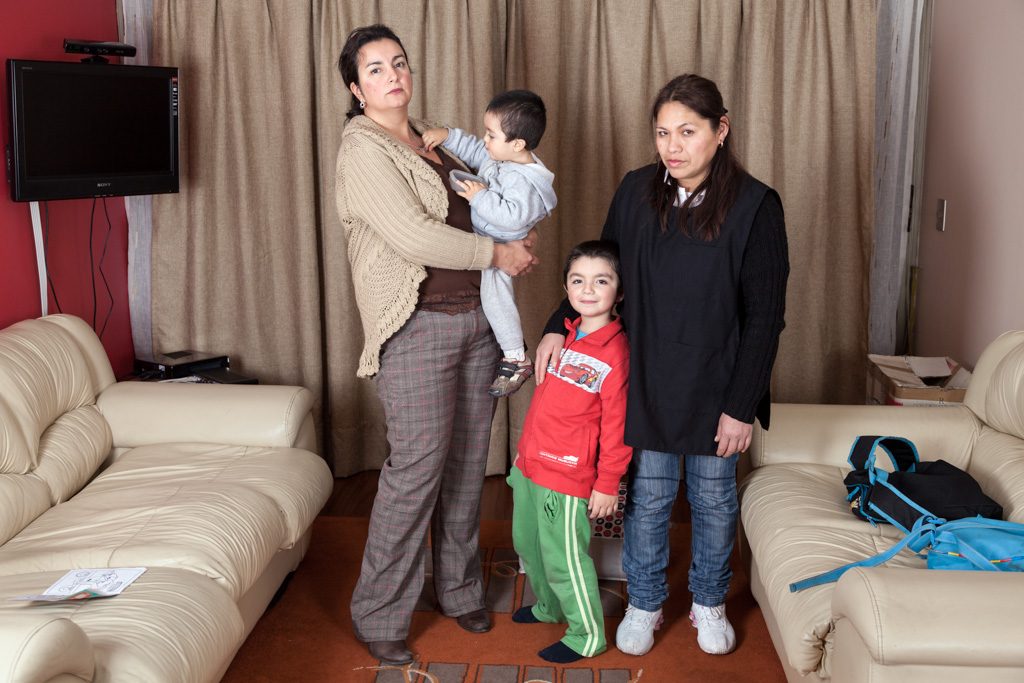
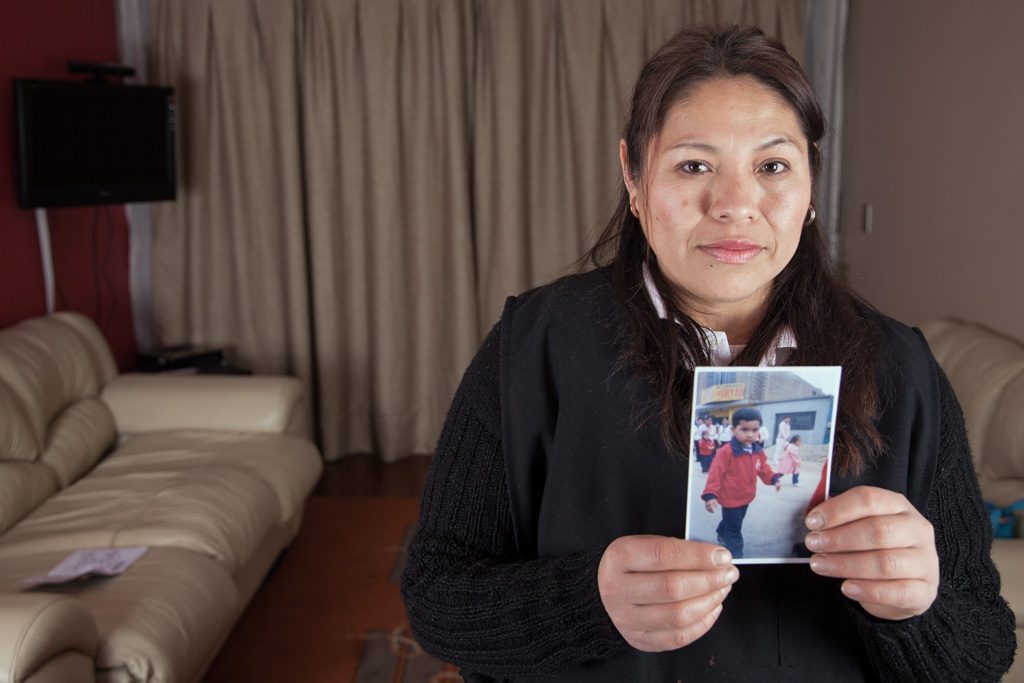
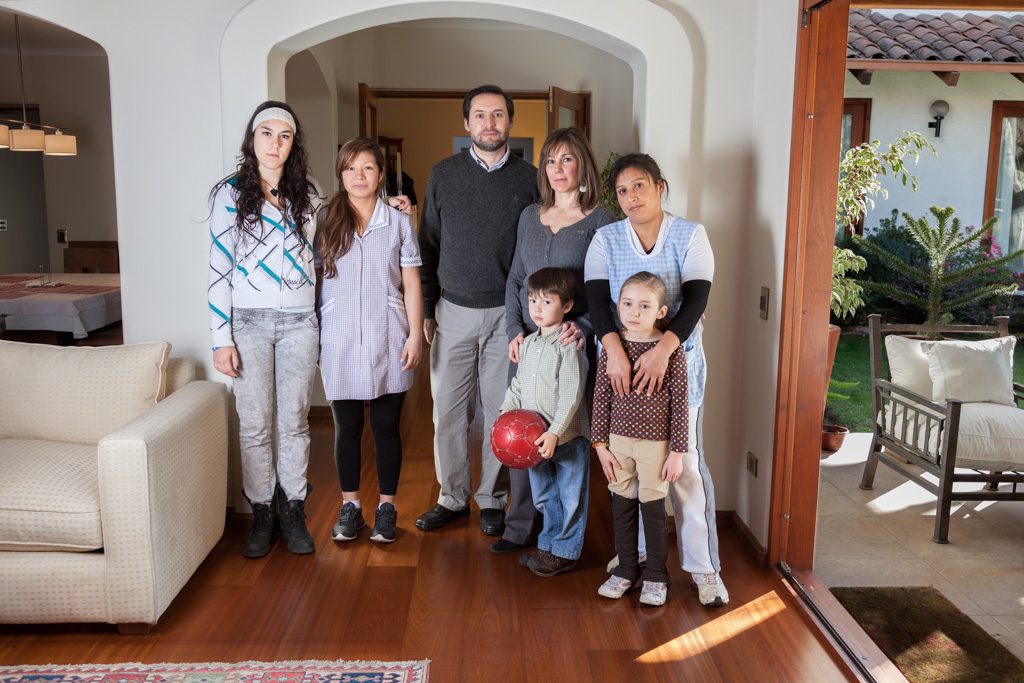
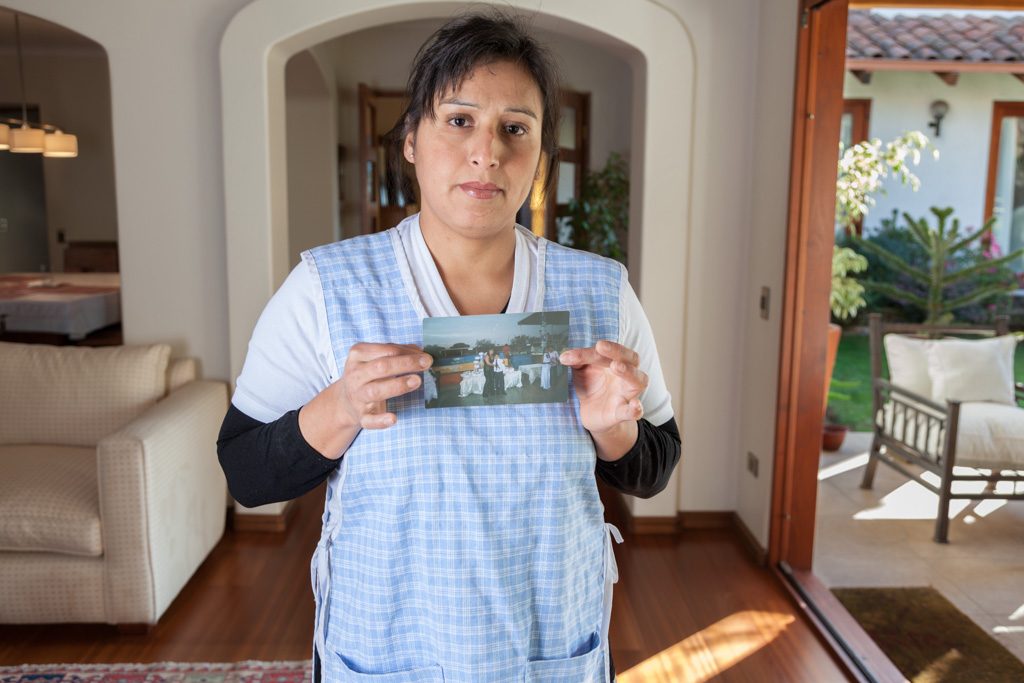
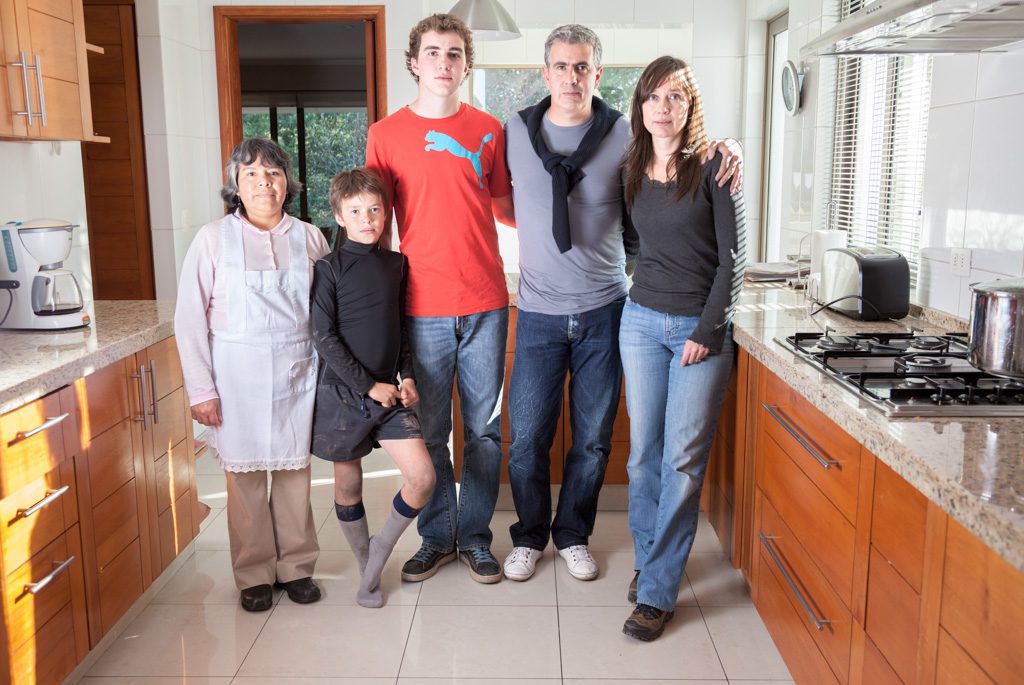
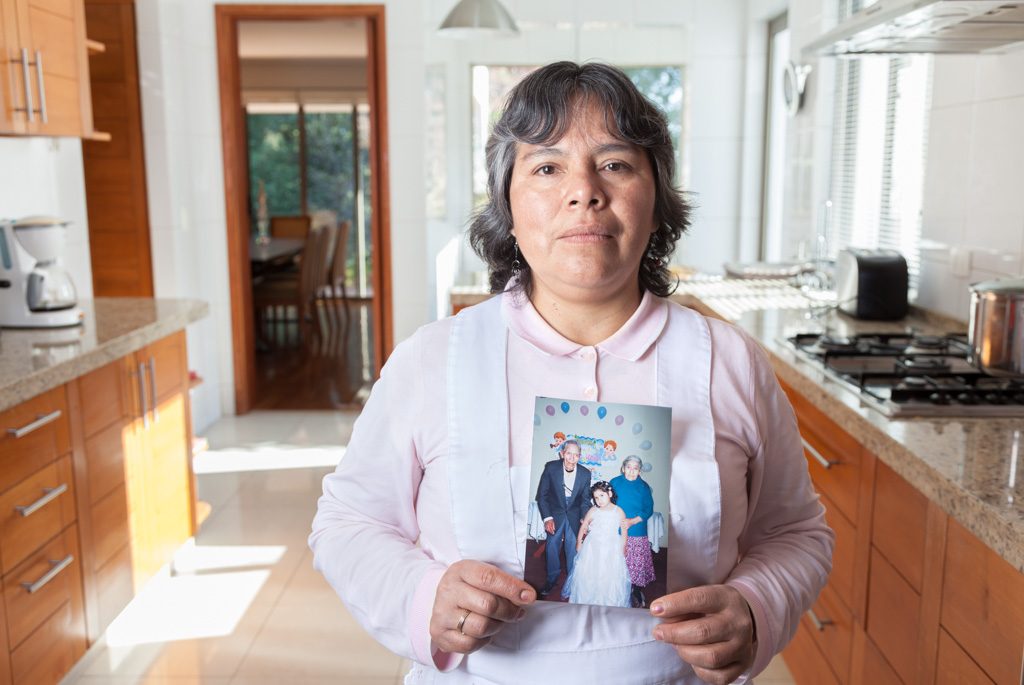
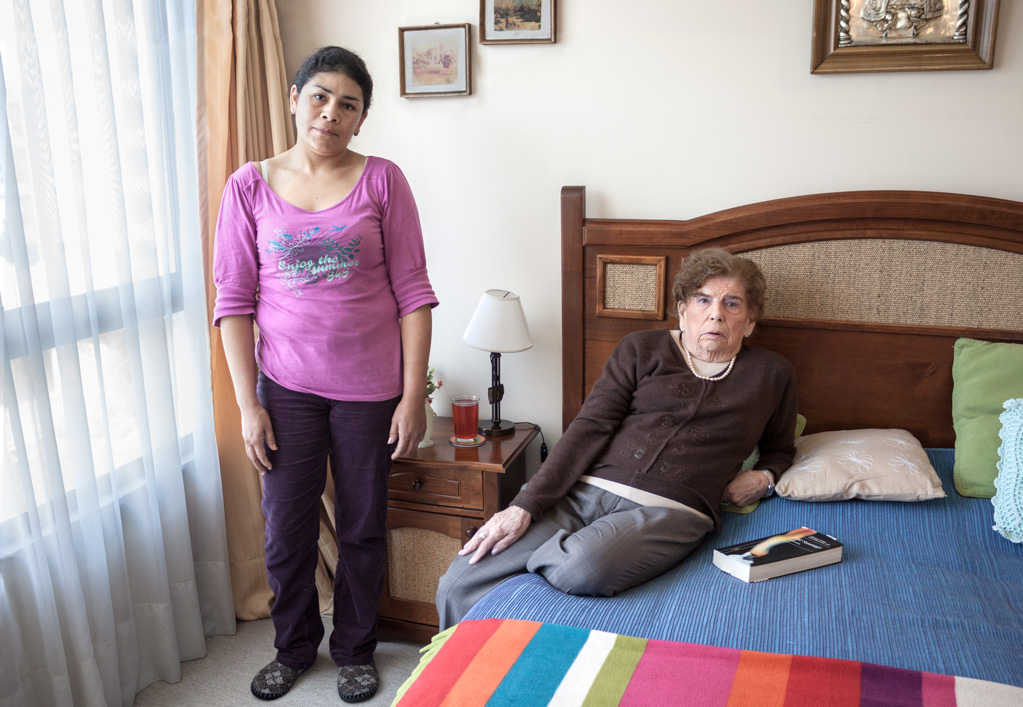
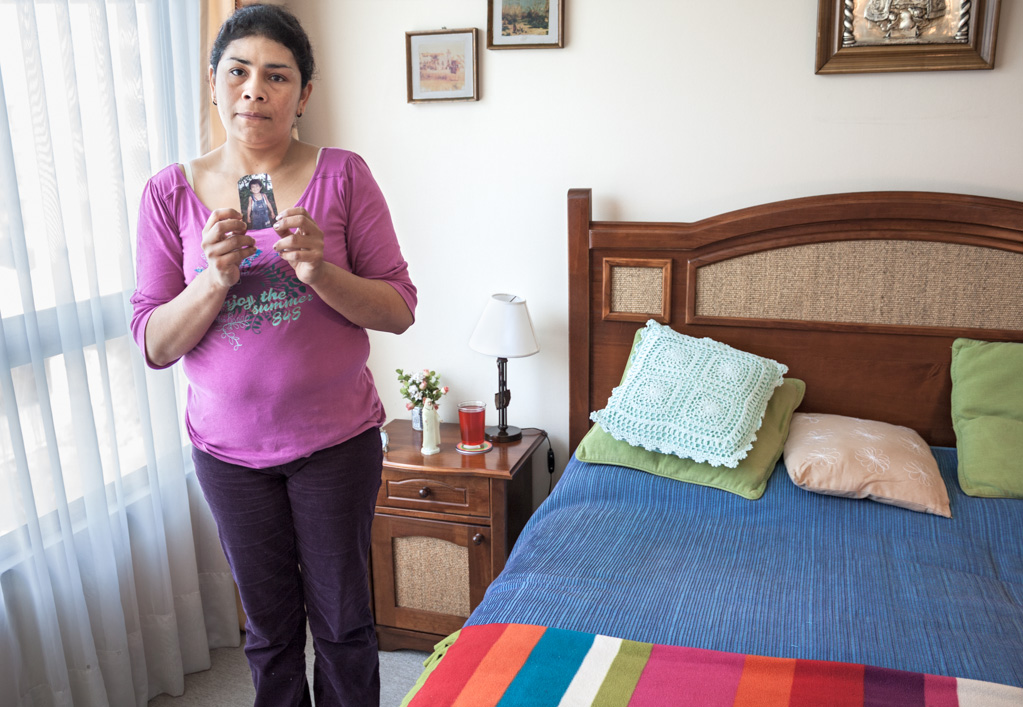
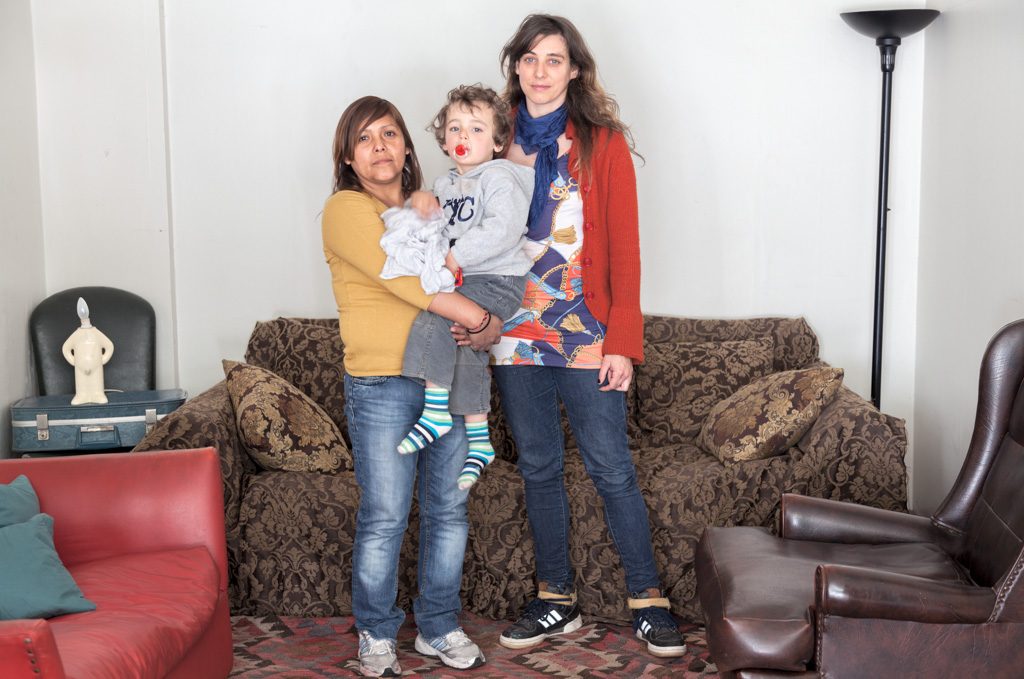
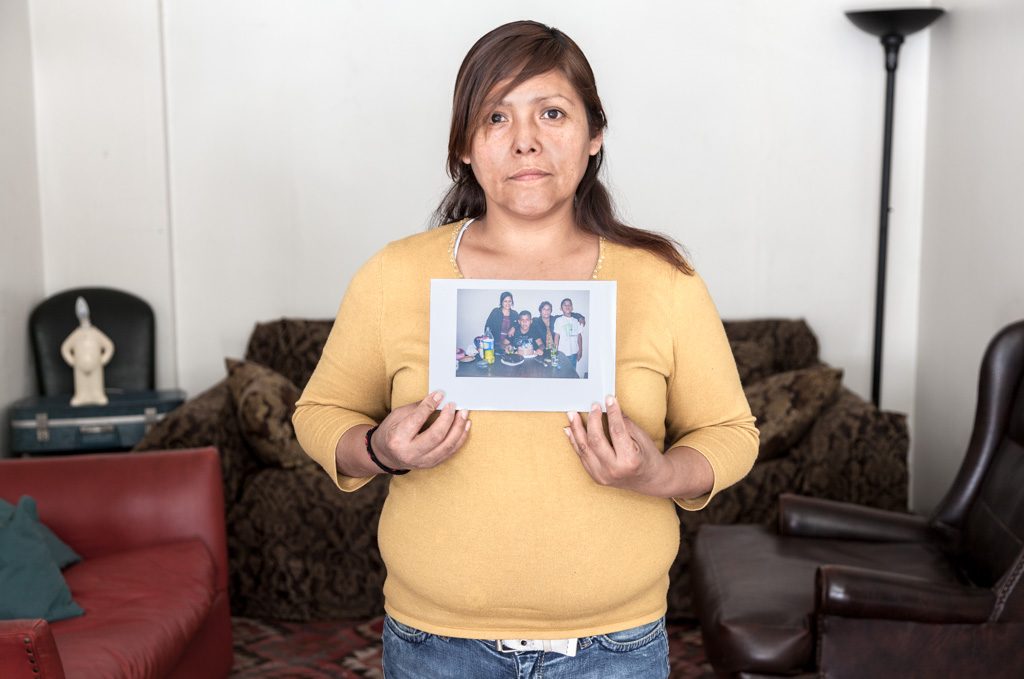
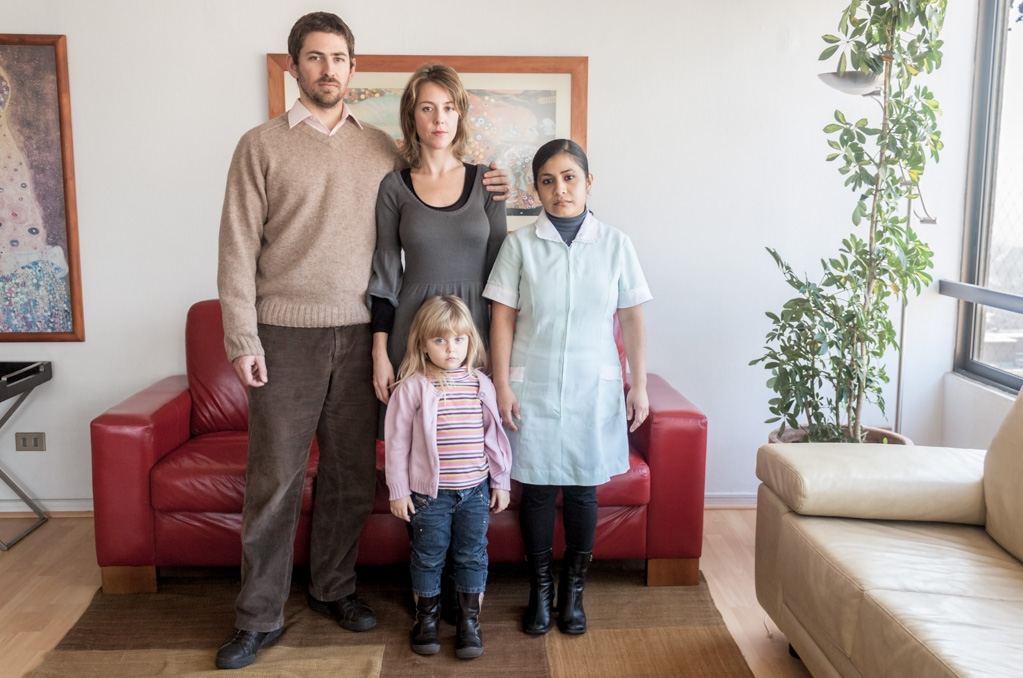
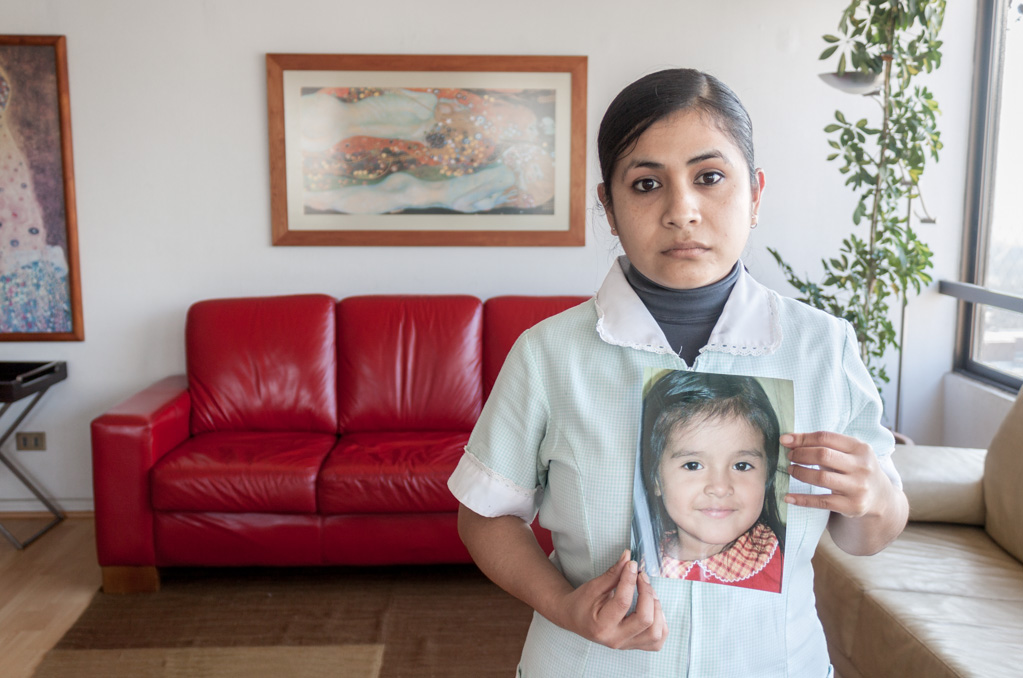
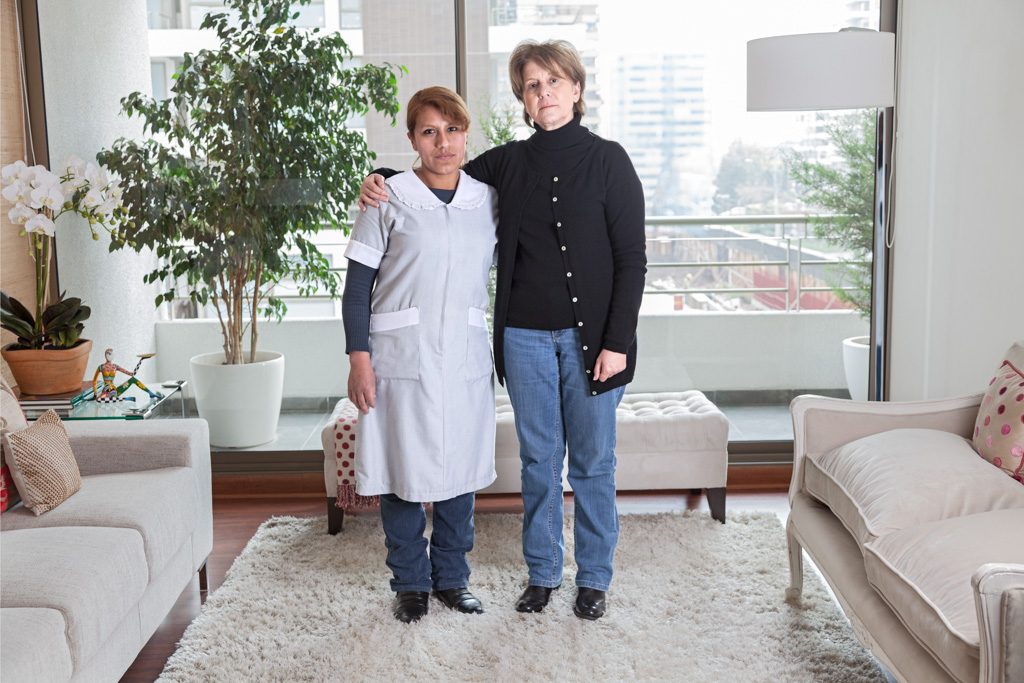
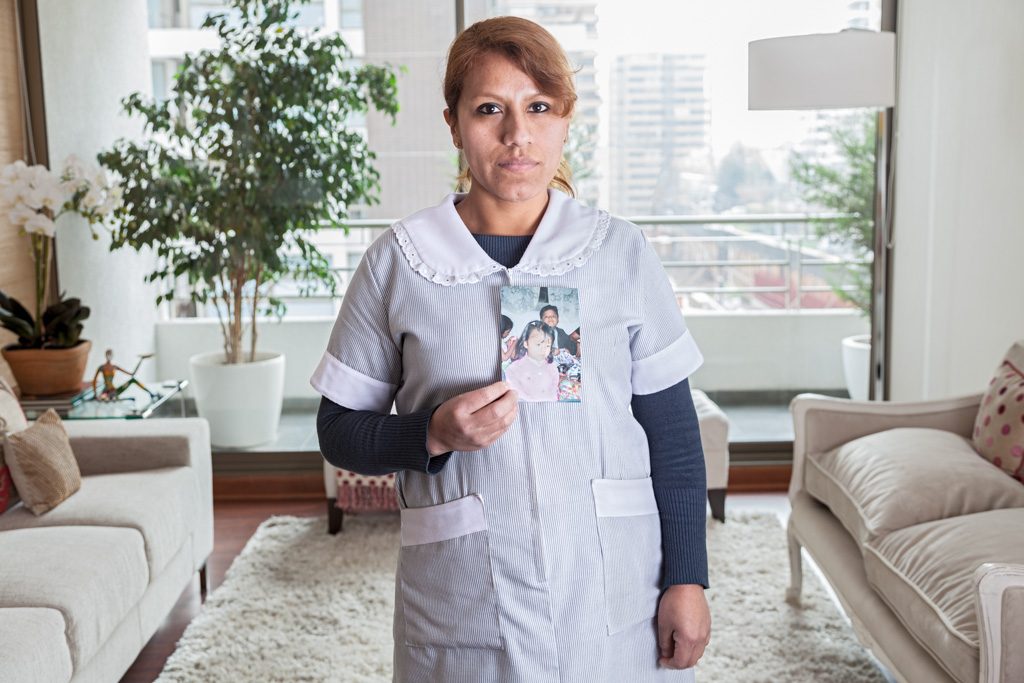
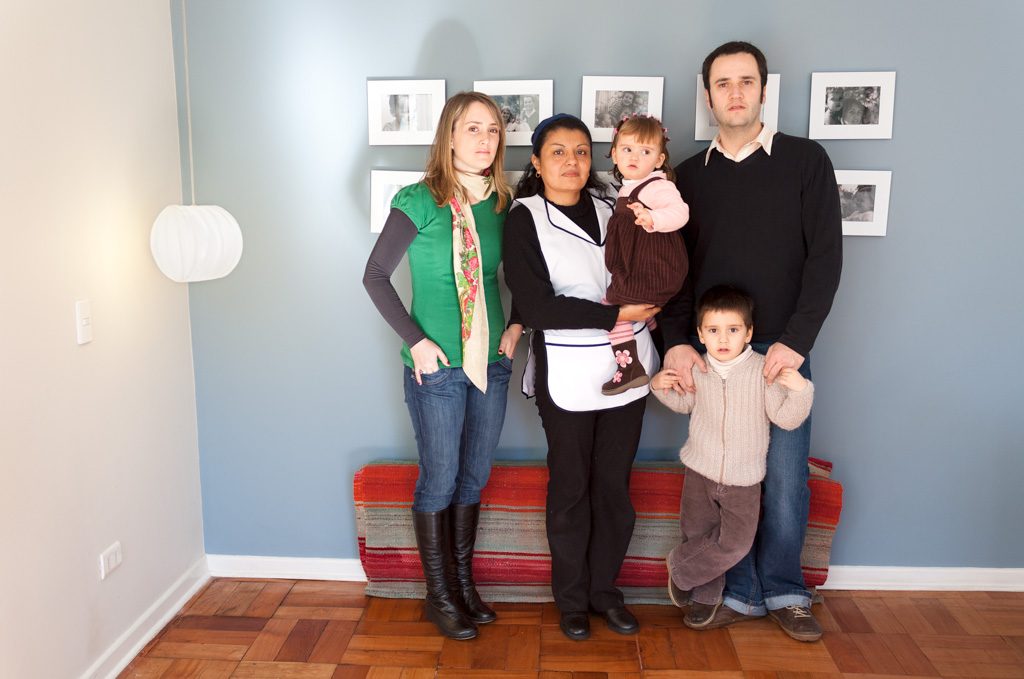
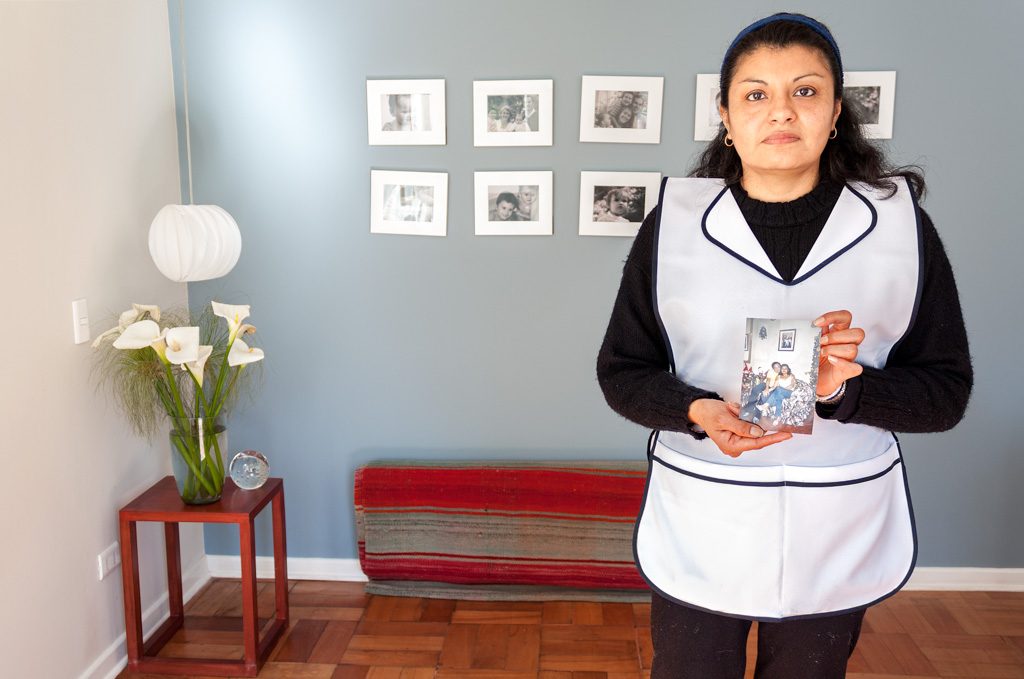
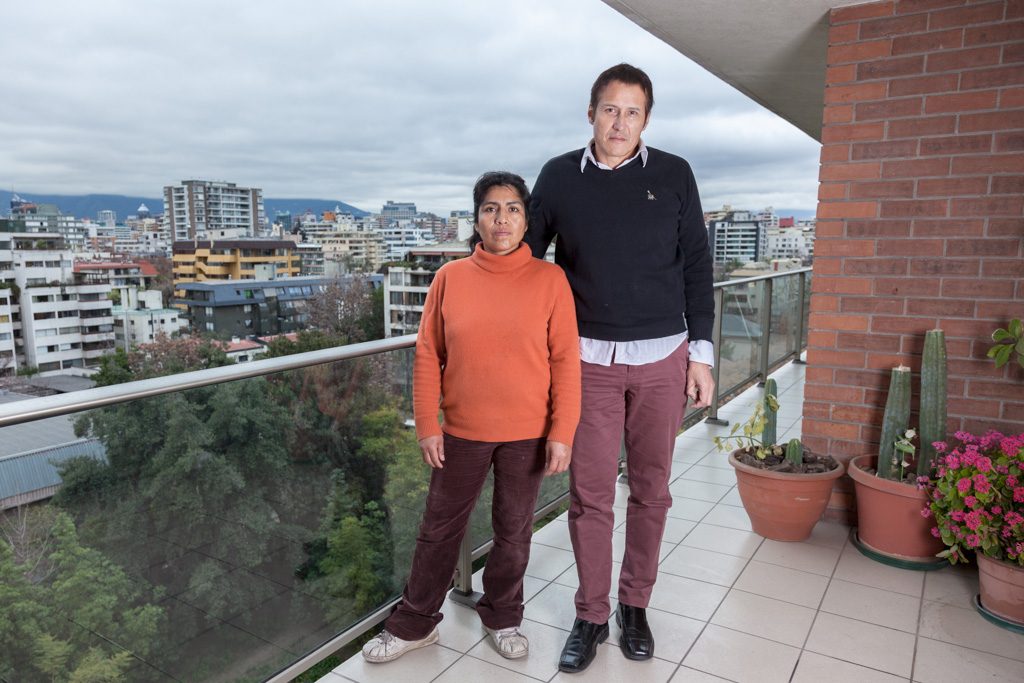
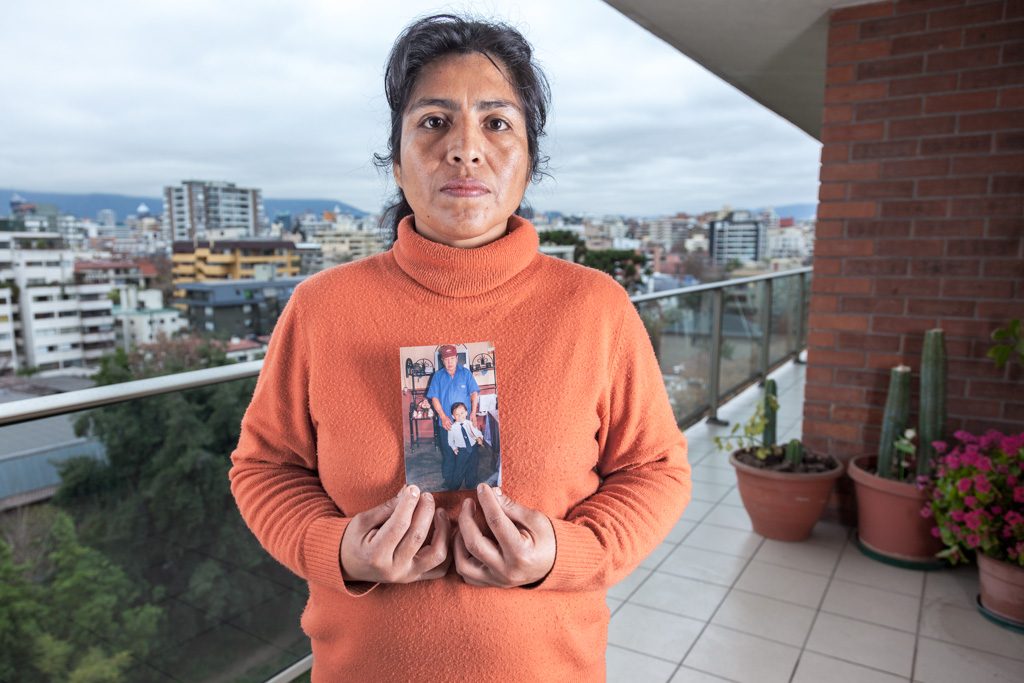
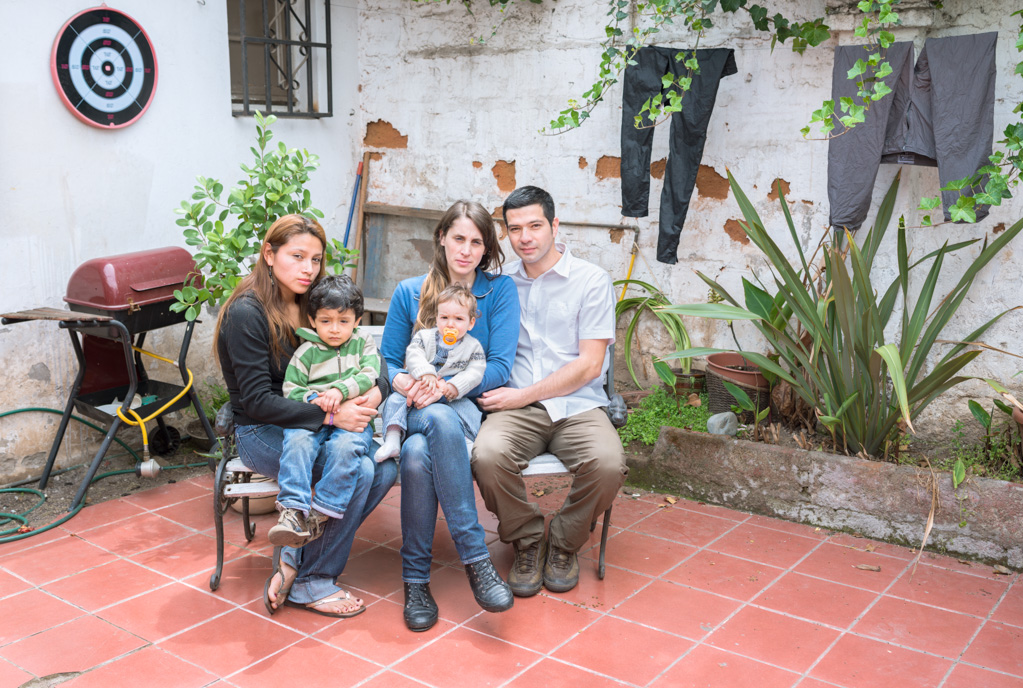
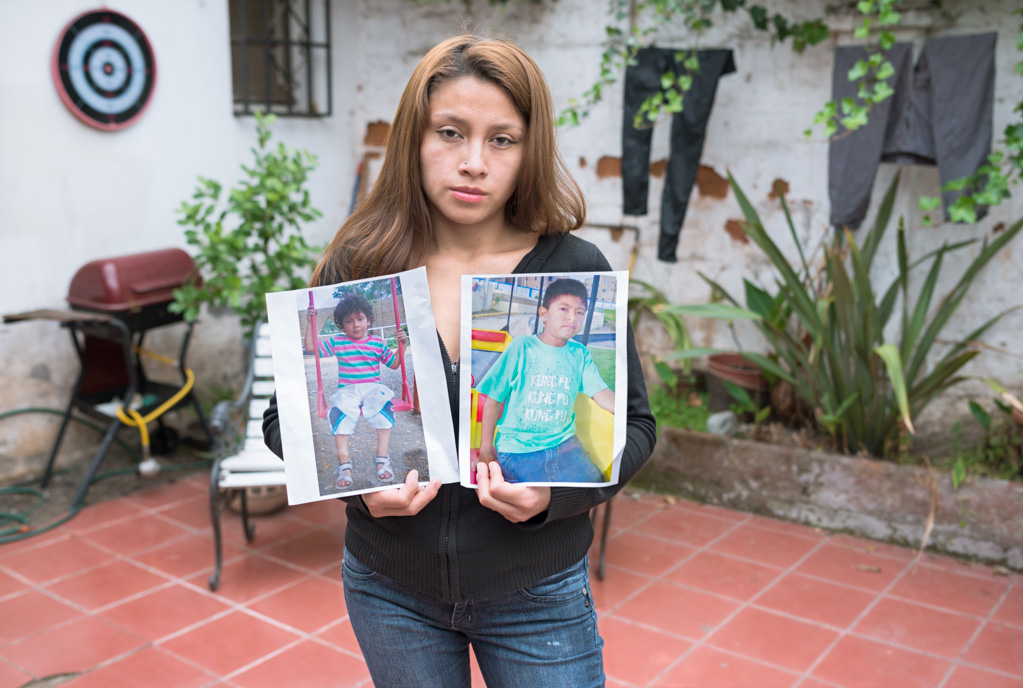
In the last years immigration of Peruvian citizens into Chile has grown very rapidly. Most of them are women who come to work in upper-middle class Chilean families as maids. They take care of foreign children or elderly, while their family stays back in their home country.
The project “Frontiers” represents this situation with 2 pictures, working as diptychs, for each family – Peruvian worker. The first picture shows the family with the Peruvian worker (there was no intervention of the photographer on people’s distribution). The second shows the Peruvian worker alone, who carries a portrait of a relative in Peru.
This hand portrait of the second picture represents the nexus between the two countries, separated by a dividing frontier, but constantly permeated by human affection. It also emulates the portraits of “disappeared” relatives, so common in Latin American dictatorships.
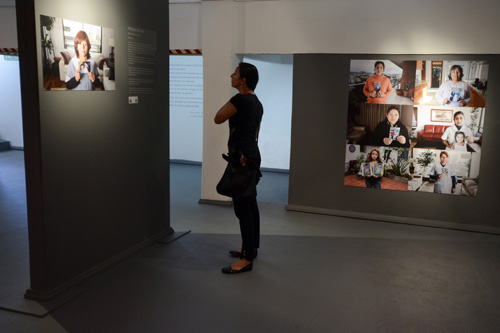
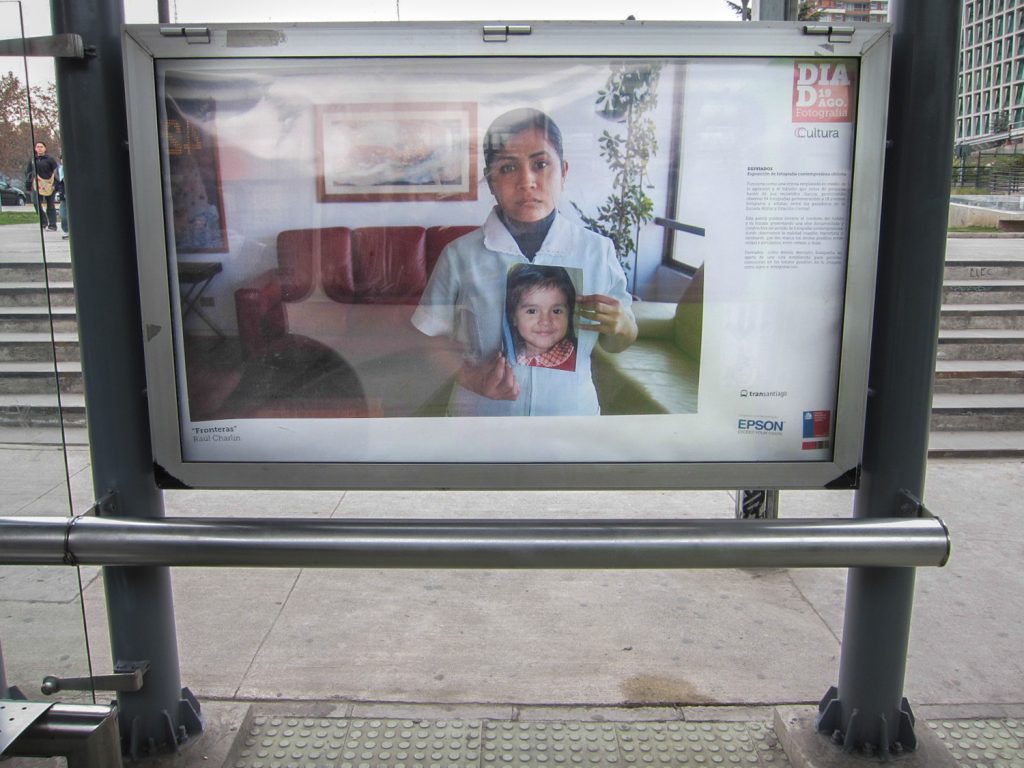

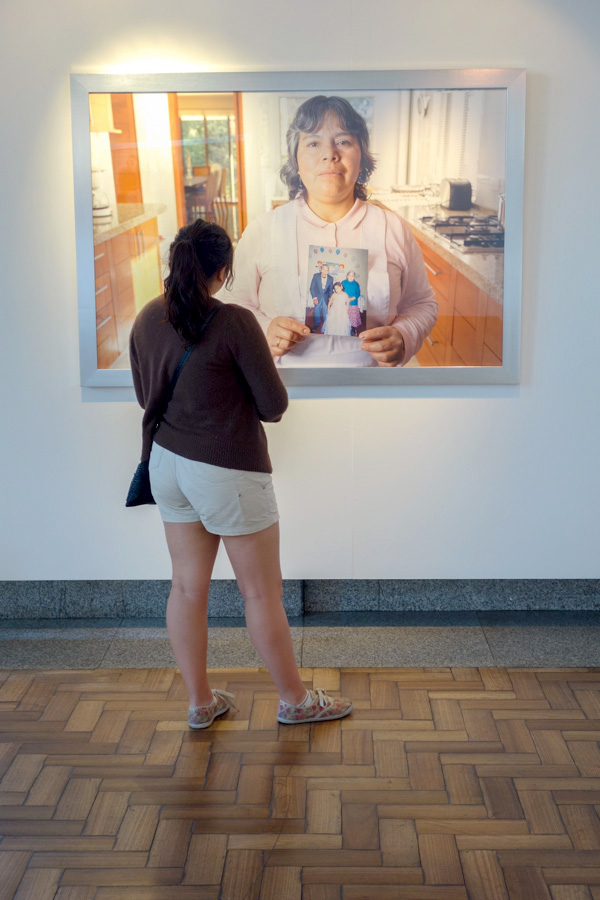
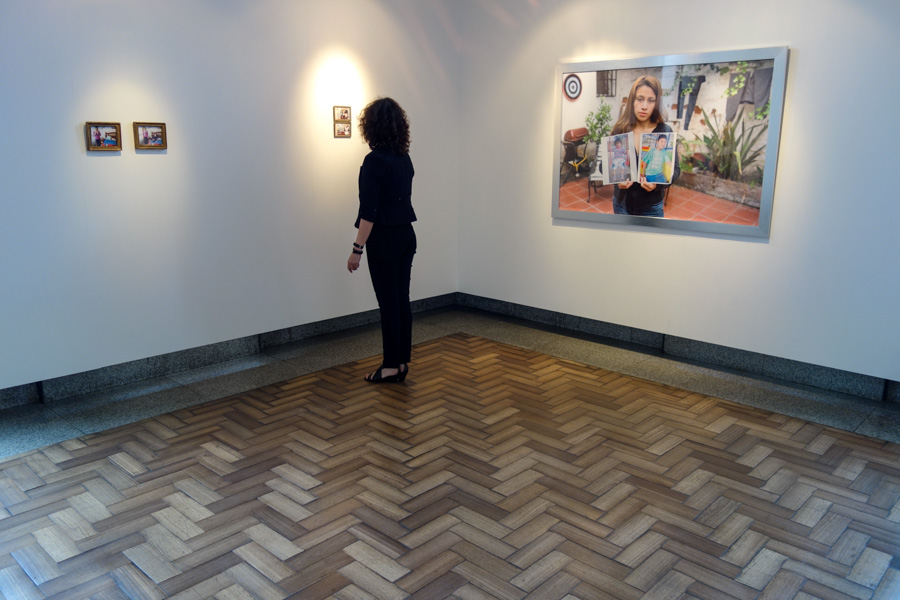
BRIEF BIOGRAPHIES OF PERUVIAN DOMESTIC WORKERS
Betty was born in Barranca 56 years ago. She is divorced and has four children. Two of them live in Peru and the other two in Chile. In Peru she studied nursing. She came to Chile to work as maid six years ago. In the picture she appears with her granddaughter Josefina.
Hidalia is 52 years old and she is originally from Ancash. She has nine brothers, she is unmarried and has no children. In Peru she studied dressmaking and worked for 15 years as maid. She came to Chile nine years ago and has always worked in the same house, also living there. In the image she shows a photo of her father and niece.
Geny is 38 years old and was born in Chiclayo. Her four children live in Peru. In the image she appears with a picture of the minor, Julian, of five years.
Rocío is 41 years old and was born in Trujillo. She lives in Chile along with her partner and their 2 children. In Peru she studied dressmaking and pastries. She migrated to Chile 16 years ago with her current partner, leaving her son of 3 years, who arrived to Chile some years later. In the image she shows a photo of her father and nephew.
Carol was born in Lima 34 years ago but was raised primarily in Trujillo. In her country she used to work in a company which produced asparagus. She came to Chile in 2003 because of economic and family difficulties. She has a child of 16 years old (in the picture), who lives in Trujillo with her paternal grandmother. The money saved in Chile has allowed her to buy a house in Peru, where she travels annually. Her dream is to buy a house in Chile.
Nelly is 35 years old and was born in Lima, but was raised in Huaral. She has three brothers, who currently reside in Peru. Nelly studied cosmetology in Peru. She came to Chile at the age of 20 to financially support her mother to maintain her brothers. Later she brought her mother. The girl in the photo is her niece.
Carmen was born in Lima 41 years ago. She has nine brothers and arrived to Chile eight years ago. She lives with her partner and daughter. In the picture she shows a photo of her nephew.
Nelly, 28-year-old, was born in Trujillo. In her country she studied artistic communication. In 2006 she came to Chile to work as maid, so she had to leave her small daughter (in the photo) in Peru. Only after six years she was able to bring her to Chile. Today she is married with a Peruvian citizen, has another child, and is dedicated to the sale of books.
Pilar was born in Lima 47 years ago. She studied to be a nursing assistant. In 2005 she left her city, her husband and her two sons to come to Chile to work as a maid. She wanted to afford college for their children. When she achieved her purpose, she returned to Peru in 2009. In the image she shows a photo of her husband in Peru.
Maribel, a native of Lima, is 44 years old and has seven brothers. She studied dressmaking. In 2006 the textile company where she worked went bankrupt so she came to Chile, leaving her three children in Peru. In 2010 she brought the minor; the other two came the next year. Her mother, sister and nephews appear in the picture she is holding in her hands.
Sheila was born in Trujillo 26 years ago. She has three children: Piero (10), Ignacio (5) and Sebastián (2). She arrived to Santiago in 2005 to work as maid, when she was 19 years old. She lives with her partner (who is dedicated to wash cars) and her younger son. The two oldest are in Peru with their respective paternal grandmothers. During 2013 Ignacio will come to live in Chile. She has no interest of returning to Peru, she wants to live in Chile along with all her children.
ABOUT PERUVIAN WOMEN MIGRATION TO CHILE
By Herminia Gonzálvez Torralbo
PhD in Social Anthropology and Cultural Diversity, researcher at the Centre for socio-cultural research (CISOC) at the University Alberto Hurtado, Santiago de Chile.
The high proportion of women is one of the most outstanding traits of Peruvian migration in Chile. This phenomenon of feminization, shared with other collective Latin Americans of great presence in Chile, has highlighted women in human mobility not only in quantitative terms, but also by their responsibility as mothers, sisters or daughters, who maintain their family ties from the distance. In particular, this way of living life separated by the frontiers of the nation-state implies that women (who in their vast majority are mothers) incorporate arrangements in the interior of their family related to care tasks and socialization processes of their children, both those who remain in the place of origin as those who are with them in the destination.
In the case of these migrant mothers, it is women who have become the main economic providers for their homes, located thousands of miles, forming “transnational families”. The provisions that these women perform come from work in homes of Chilean families, compromised of working fathers and mothers whose children are in need of care. They are migrant women who do the domestic and care work, product of the new Chilean labor realities, the sustained increase of women in the working world, the strenuous workdays and the distance between work and home, among other factors.
In order for a migrant woman to be able to take care of the children of a native woman in the receiving society and receive a remuneration in return for this work, it is required that in her community of origin another person, usually a woman of the family, take care of their own children. Grandmothers, aunts, sisters, and even hired women in whom mothers delegate the care of their children, play a key role in the process, not only to make possible the migration but also for its continuity in time. But despite the physical distance, migrant women retain emotional ties with their families of origin thanks to new information and communication technologies, which facilitate contact, either by telephone or internet. This is supplemented by the exchange of photographs, letters and gifts, causing that the physical absence of the mother to be countered, somehow, with an imagined presence.